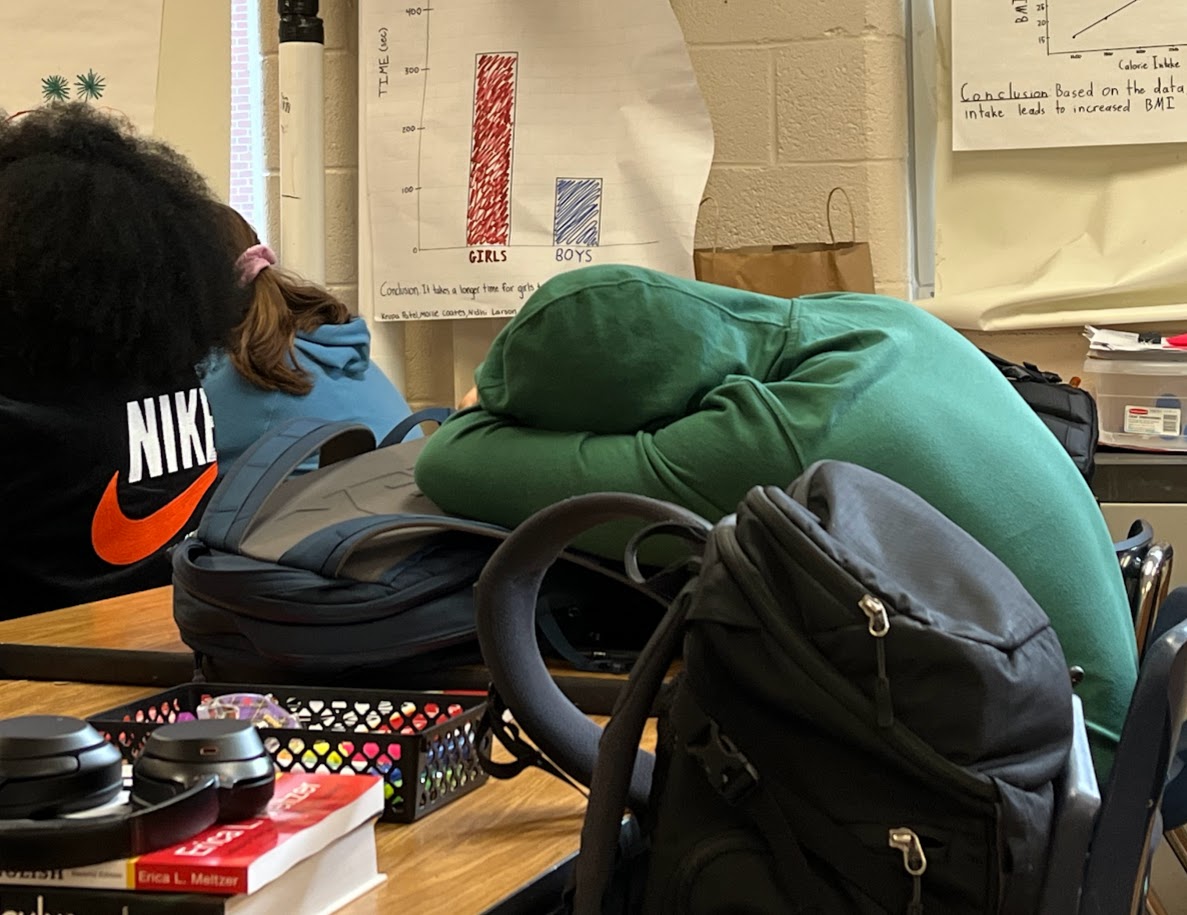Put yourself in the shoes of a senior in high school. You can see the finish line, you’re almost there—but first you have a two page essay due by midnight and a math test tomorrow. After nearly thirteen years of school, many seniors find their motivation waning. Oxford Languages describes senioritis as “a supposed affliction of students in their final year of high school or college, characterized by a decline in motivation or performance.” But how do students and teachers see senioritis?
“I think senioritis is like, you’ve already been through high school and it’s your last year so you’re kind of burnt out from all the assignments that you’ve already had to do and on top of that you have college applications. I would just say it’s being burnt out essentially,” Ellie Gunn (12) said.
Most students experience burnout multiple times throughout their academic career. It could be due to heavy workloads, sleepless nights or a multitude of other reasons.
“I feel like burning out can happen at any point, but I feel like with senioritis, you’re almost there and you can see the finish line and you just want to be done already,” Kylie Grant (12) said. “It’s kind of a timing thing.”
Senioritis can not only be felt, but it can also be seen. Some seniors zone out during class and others put their heads down and go to sleep. Class cutting, missing assignments, tardiness and lack of motivation are all symptoms of senioritis.
“I’ve seen some of my friends that have really hit that roadblock mentally and they just don’t have that motivation to do their work anymore and they’re just ready to graduate,” Gunn said.
Many students don’t see the need to keep working after college applications. When a student is that close to being done, in many cases, they think it’s finally excusable to let go and relax.
“I think it’s just the idea that you know you’re so close to being done that you just want to get it over with already,” Grant said. “Just having to keep doing assignments and keep doing work when you’re so close is unmotivating.”
However, senioritis doesn’t occur at the same time for every student. Some experience it early in the year, some after winter break, and some don’t feel unmotivated at all. There are many factors which play into a student’s mental health: course load, family life and jobs apart from school can all take a toll on a student’s ability to stay focused.
“Right now, [seniors] are concerned about college so, to me, that’s a type of senioritis. They’re not really focused on school as much because they’ve got pressure,” Ms. AROB said. “And then, once you get to like … spring break, it’s over.”
A student experiencing senioritis is never alone. Many others share the same feelings and teachers can empathize with the students as well. By the end of the year, some teachers understand why a senior may not be as driven as they once were.
“Number one: high school happens one time,” Ms. AROB said. “Number two: right now is the crunch time and after you figure out your plan, it all gets better. When you make a decision about what you’re going to do next, things do get better. Senioritis can be handled, [teachers] can handle it.”




































